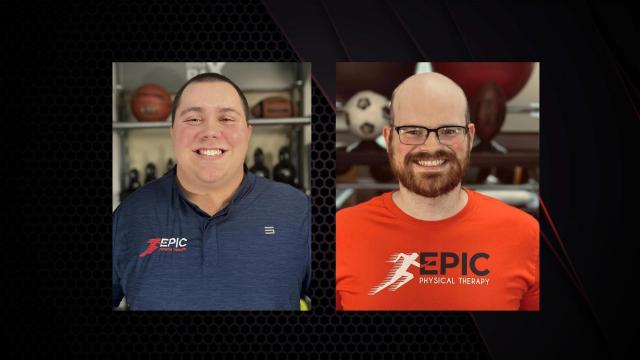Winning in the fall begins with a strategic preseason
This article was written for our Sponsor, EPIC PT
According to the American Academy of Orthopedic Surgeons, sports injury rates have been trending downwards since the early 2000s, yet the number of injuries that require surgeries or significant time off from the sport has increased, with football having the highest injury rates. While most athletes are back in the game in under three weeks, one out of every five injuries sideline athletes for the entire season or the rest of their athletic careers.
To avoid injuries and keep student athletes in good health, a strategic preseason has never been more important. Here, Athletic Trainers from EPIC PT share insight and answers to the most common questions they receive.
What are some of the most important things an athlete can do in preseason?
In North Carolina, football preseason typically begins in July and extends through August. During this time, athletes will be practicing in high heat and humidity which can be dangerous if underprepared. Rather than jumping off the couch and getting right into practice, athletes should begin to acclimatize themselves prior to their preseason. “One thing I try to preach to all my athletes is trying to do some pre-preseason training. You might have practice leading up to your actual preseason. During those training sessions, exercises don’t need to be at the same intensity that practices will be during the preseason, but it’s a good idea just to get out there and get used to working out in those conditions,” said Will Jacobson, Certified Athletic Trainer at EPIC PT.
Equally important during the preseason is maintaining good hydration. “We’re seeing normal summer temperatures at 90 and above. With how much heat there is and how intense the practices are, hydration is probably the most important thing, especially with regard to heat illnesses. The number one preventative measure for heat illnesses is hydration,” said Patrick Hoffman, Certified Athletic Trainer at EPIC PT. To know how much water you should consume each day, he recommends dividing your weight (in pounds) in half to know how many ounces of water your body needs. For example, an athlete weighing 160 lbs should consume 80 oz of water daily.
Athletes should also stretch before and after practices to warm up or cool down their muscles and maintain mobility. “It doesn’t need to be anything long, 15 minutes of stretching, mobility training, or doing some foam rolling or hitting massage on sore muscles can make a world of difference in daily soreness,” Hoffman said.
What should athletes avoid in preseason?
Hoffman and Jacobson agree that many student athletes can go wrong when it comes to nutrition. It’s tempting to make a quick stop at a fast food restaurant, but unhealthy foods don’t give athletes the fuel their bodies need to perform well during practice. Instead, eat more complex sources of carbohydrates like whole grains, beans, fruits, vegetables, and rice. Additionally, athletes should be careful that they’re getting enough protein. “Protein is used to help rebuild muscle, so protein-rich diets have been shown in athletes to boost performance and reduce soreness. Whether it’s plant-based or animal-based protein, that’s up to each athlete,”Hoffman said.
Athletes should also take great care to avoid overtraining during preseason. “You shouldn’t be trying to practice two to three times a day. If you have a high-intensity workout at one point in the day, it’s okay to work in some teaching activities where there’s not much actual movement, but you’re studying playbooks. You also don’t want the kids to go out, have their full practice, and then go home and run routes with Mom and Dad for an hour because they’re not going to get the appropriate amount of rest their body needs to recover for the next day’s practice,” said Jacobson.
What are the most common mistakes athletes make in preseason training?
One of the most common mistakes athletes make is not getting enough sleep during preseason. During sleep, your body gets a chance to recover, heal, and avoid future injuries. This means athletes should be getting eight to ten hours of sleep each night. By getting enough rest, athletes will also be sharp during practice and games so they can make smarter plays and reduce avoidable injuries.
Many athletes also jump right into intensive workouts. “We should be building their load in intensity so it peaks right before the season starts. The more work we do beforehand, the less likely we are to get those nagging injuries throughout the season,” Hoffman said.
How can professionals like EPIC PT tailor training to fit a specific athlete’s needs?
Seeing a Physical Therapist or Athletic Trainer isn’t just about recovering from injuries, but also working to prevent them. EPIC PT begins with a comprehensive assessment to understand where an athlete may have deficits, weaknesses, lingering injuries, pain, or asymmetries that can affect performance. This assessment is used to inform a program designed around the athlete’s unique requirements so they can keep playing the sports they love. EPIC’s priority is to keep athletes practicing throughout their PT. They want to keep athletes in the game. Therefore, in addition to physical work, EPIC prioritizes education so athletes have the right information to make better decisions about their health and training.
This article was written for our Sponsor, EPIC PT
Source: highschoolot.com
